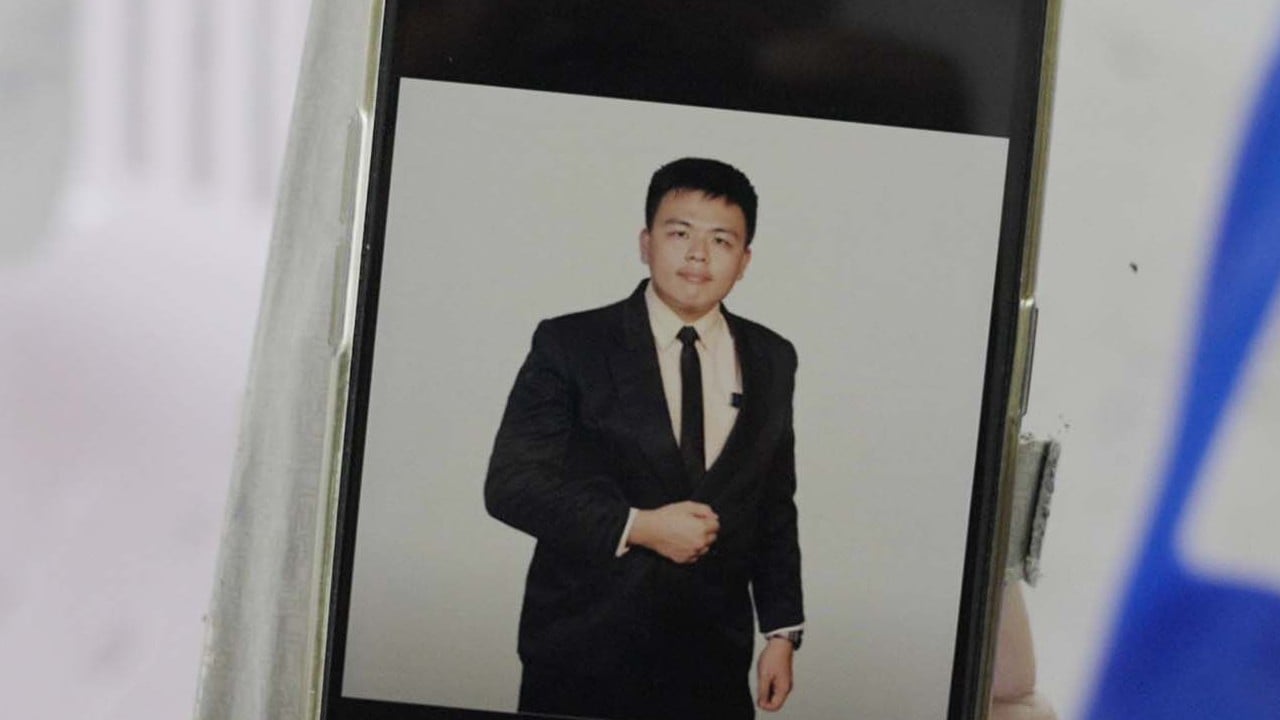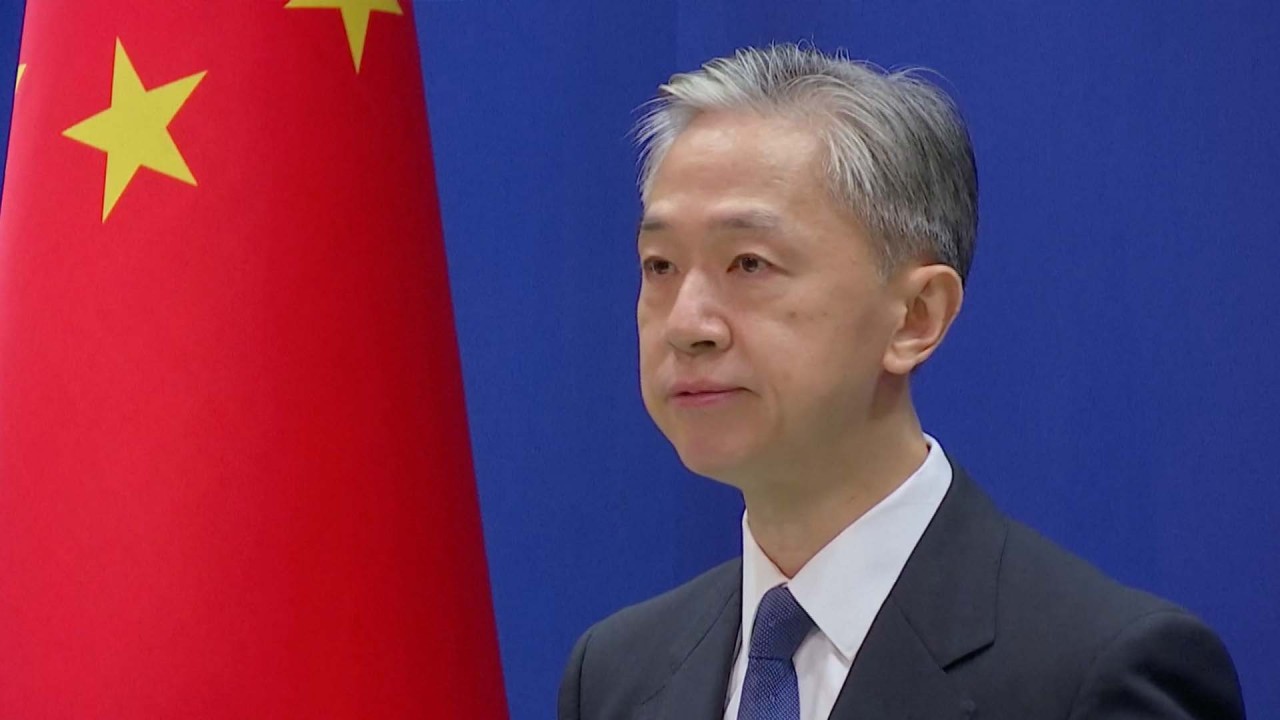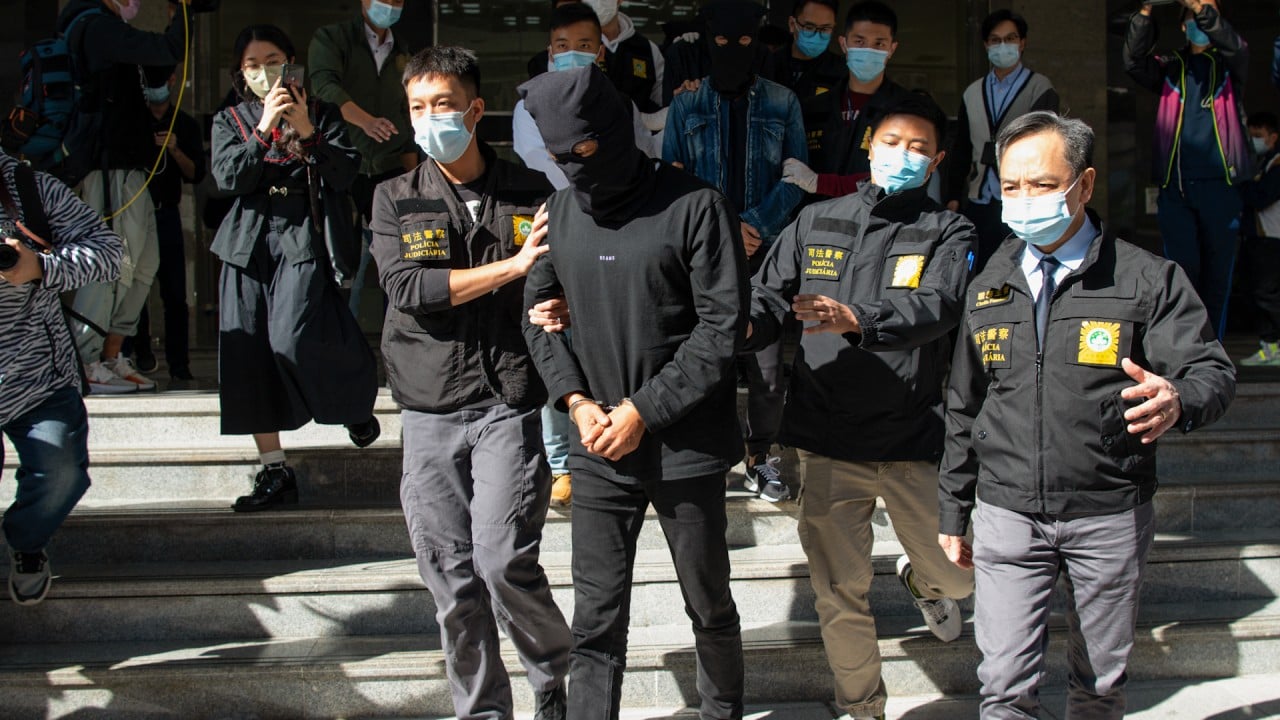
Exclusive | Malaysian victim’s death linked to Asia’s ‘hell on Earth’ scam trade
- Goi Zhen Feng died in Thailand, near the Myanmar border, after falling victim to Chinese gangs preying on vulnerable young people
- ‘No matter offers online of meeting friends, high-paying jobs, don’t be cheated ... these syndicates will use any method to lure you’, his grieving parents say
At a Buddhist cremation ceremony in Si Racha, a coastal town in eastern Thailand, his grief-stricken parents on Thursday gently laid their son’s hoodie and backpack into the simple, white casket holding his young body.
As the casket disappeared inside the incinerator, his inconsolable mother, Yang Fei Pin, clasped the arm of her husband Goi Chee Kong.
“I was there watching in the delivery room when my wife gave birth to him. My heart was so full of joy,” said Goi Chee Kong, a 50-year-old mechanic. “When I saw my son’s body, you (know) the pain in my heart.”
‘First traced death’
But testimony from those rescued – including from Hong Kong residents – as well as social media videos, suggest there are likely already many more, killed by their captors or during desperate escape bids.
From China, Hong Kong and Malaysia, Thailand, Vietnam and Indonesia, tens of thousands of vulnerable young people – deprived of money or social contact through the pandemic – have been trained, tricked or tortured into conning their compatriots over the phone.
Indonesia, Cambodia crack down on ‘aggressive’ Chinese-run job scams
The twists and turns of how Zhen Feng ended up dead in eastern Thailand may never fully be known.
“He met a girlfriend online and they would talk over video calls,” said his father. “We never saw her face but we heard her voice … whenever we came into the room she would sign off because she was shy or the internet connection would suddenly fail.”
On January 19, Zhen Feng left home in Malaysia’s central city of Ipoh for Bangkok to meet his online “romance”, promising to return on February 5, the day before his mother’s birthday.
He did not show up. “I knew something was seriously wrong,” said Yang Fei Pin. “My son would always be there on my birthday.”
His parents registered him as missing with Malaysian police.
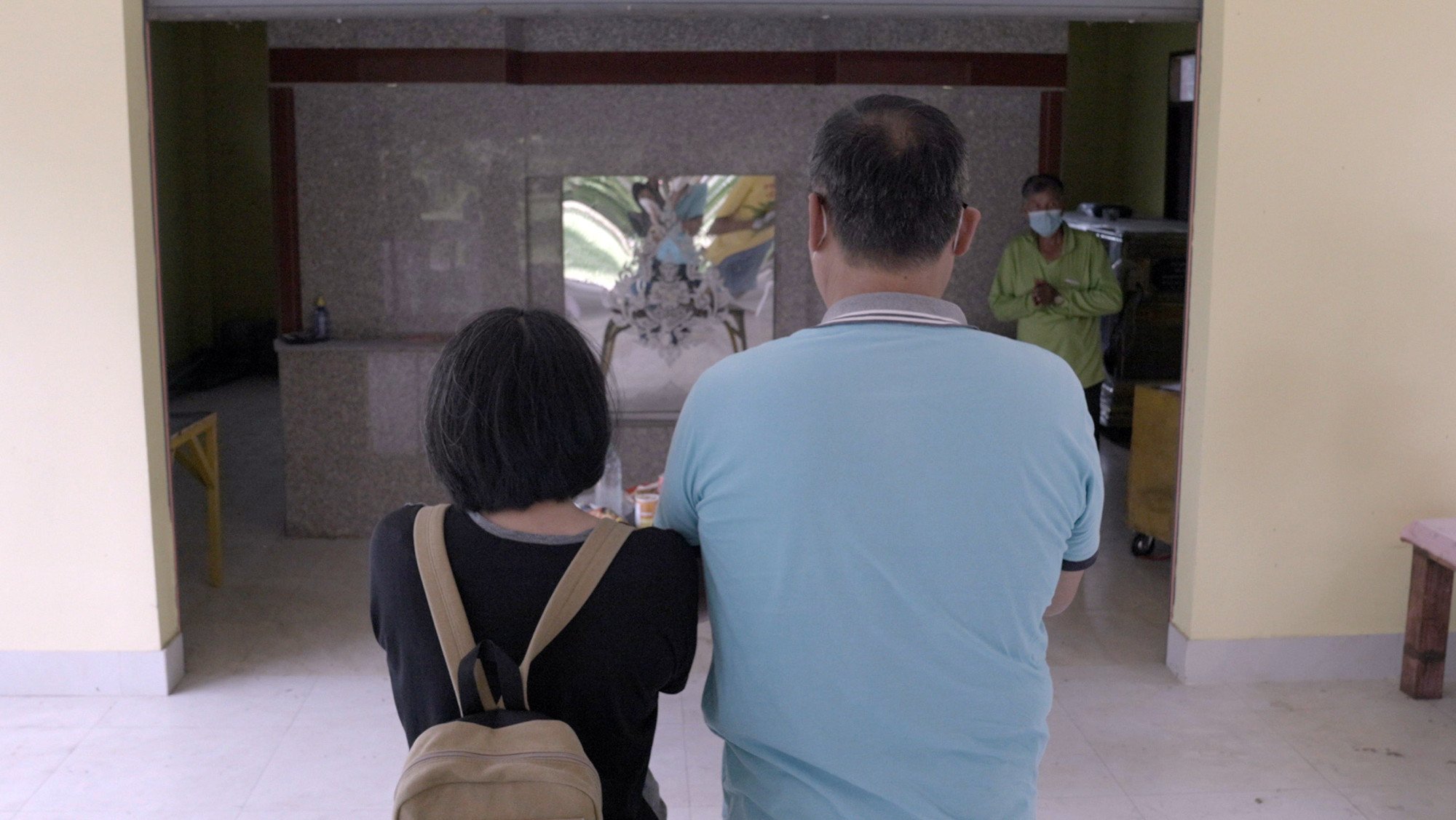
The casino has a nasty reputation, renowned for being a major scamming site and made up of dozens of buildings including supermarkets, dormitories and hotels.
“He said he needed 80,000 ringgit (US$17,600) for medical treatment. We were certain he was being threatened,” said Zhen Feng’s father. “He sounded like he was a completely different person.”
It was the last time they would ever hear his voice as he vanished after that telephone conversation; it is not even clear he was actually in hospital by that point.
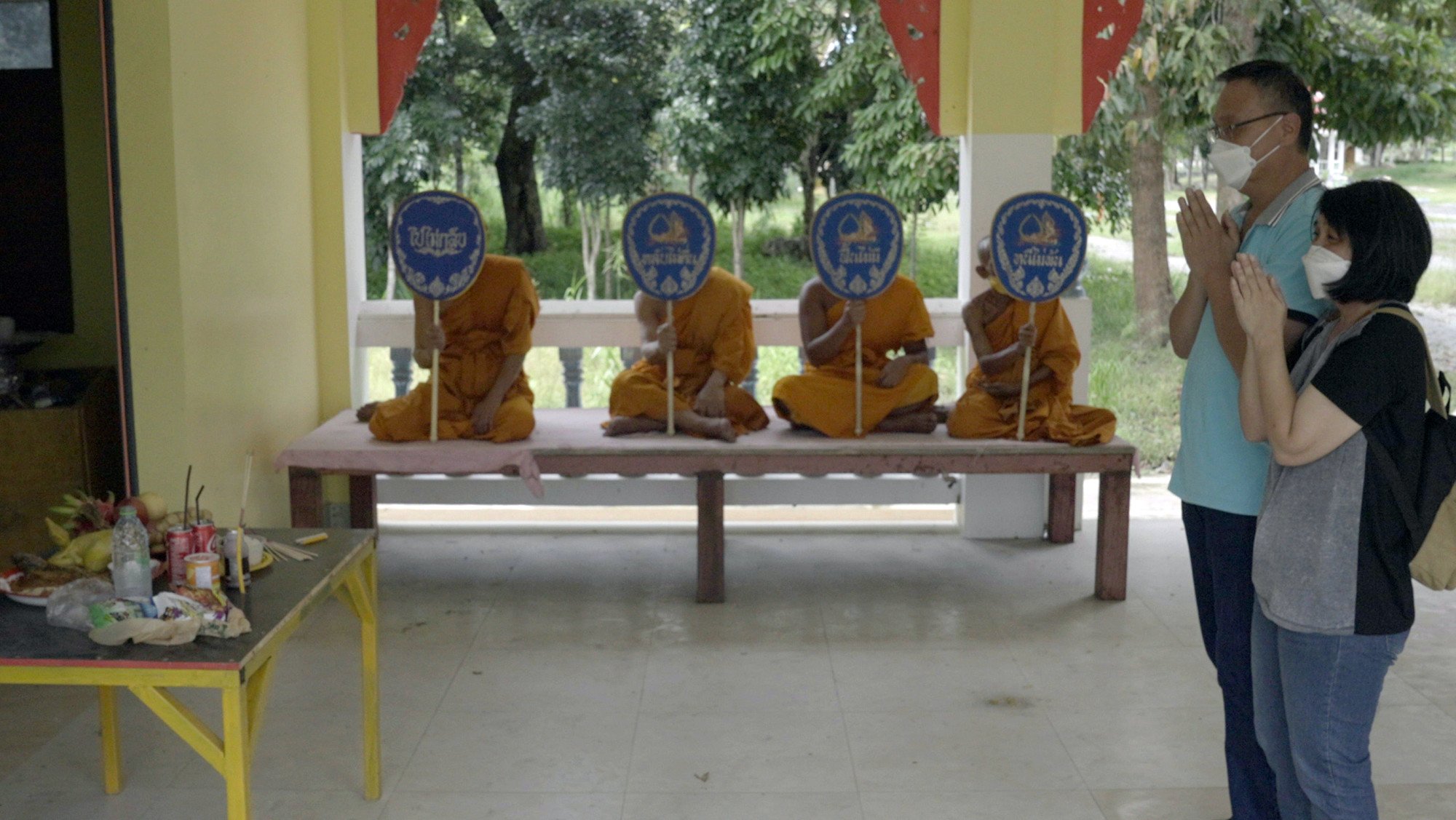
Malaysian officials with sources inside the scam rooms at KK Park say those sources watched the ailing young man weaken during long hours of work.
Hongkongers, Taiwanese and Thais previously released from the site have described a labyrinth of scam centres trading “sales agents” and subjecting reluctant workers to torture, abuse and even the forced transplant of organs.
Zhen Feng was left in hospital by a stranger on April 11, admitted with a fake Malaysian name and passport number and unable to speak. This meant his family were unable to trace him, until it was too late.
These syndicates will use any method to lure you into this hell on Earth
His death certificate registers the cause of death as Guillain-Barre syndrome, a rare disorder where the immune system attacks the nerves, linked to an untreated infection. But Malaysian officials and others close to the case believe he was beaten; there were signs of abuse including internal bleeding.
Unclaimed in Mae Sot, Zhen Feng’s body was transported by volunteers to a Buddhist temple in Si Racha in eastern Thailand where it was finally cremated on Thursday – after weeks in the ground, followed by a DNA match – with his parents looking on.
They had only found out on August 30 that he was believed to be dead as pieces of the tragic puzzle slowly fell into place.
Goi Chee Kong had a pained warning for other youngsters.
“No matter the offers online of meeting friends, boys or girls or high-paying jobs, please don’t be cheated by them. These syndicates will use any method to lure you into this hell on Earth.”
Chinese gangs
Regional security officials say the scammers are nationals of the countries they are targeting, or Chinese speakers tapping the mainland, Hong Kong and the wider Chinese diaspora for cash.
Operating through sophisticated fake profiles and shadow websites – copying real banks and businesses – they ‘close’ the scam by posing as crypto sales agents, police officers or other officials.
Some of the so-called agents are working with their eyes wide open to the damage they are inflicting, authorities say.
But many others are trafficked and once inside a scam centre are effectively debt-slaves who can only pay their way out with a fee ranging from US$3,000-15,000.
Are kidnappers targeting Chinese women in the Philippine gambling sector?
“It’s a ransom,” said Victor Wong, a Malaysian businessman based in Thailand who has helped Zhen Feng’s parents as well as victims of the scam networks. “It is paid in cryptocurrency … it’s untraceable.”
Those who fail, refuse to work or are too poor to pay, are sold onto new networks.
Officials believe the worst of the scam sites are inside the red-roofed buildings of KK Park, in a rebel-held pocket of Myanmar.
“It’s a bad, bad place,” said Sim Chon Siang, a Pahang State Legislature Assemblyman who has helped rescue several Malaysians and also accompanied Zhen Feng’s parents through their ordeal.
Nightmare continues
Chinese media reports say She, who carries a Cambodia passport, is reportedly the chairman of Yatai International Holdings Group, which poured billions into constructing Myanmar’s Yatai New City, opposite Thailand’s Mae Sot.
The area houses the Shwe Koko entertainment zone, where KK Park is the most famous casino.
Our children are falling into these scams … every country has a duty to do everything they can to stop it
Assemblyman Sim believes several hundred Malaysians are still in trouble.
He says he recently helped two who had been trapped for weeks in Sihanoukville. They made a run for it from a van packed with Taiwanese and Chinese while they were being trafficked through Thailand en route to KK Park.
“Our children are falling into these scams … every country has a duty to do everything they can to stop it,” Sim added.
As flames devoured Zhen Feng’s casket, at home in Ipoh his younger brother and sister watched over a live-stream, sobbing and hands clasped in prayer.
A dead son, a lost brother – a void in a family that will never be filled.
Additional reporting by Danny Mok

